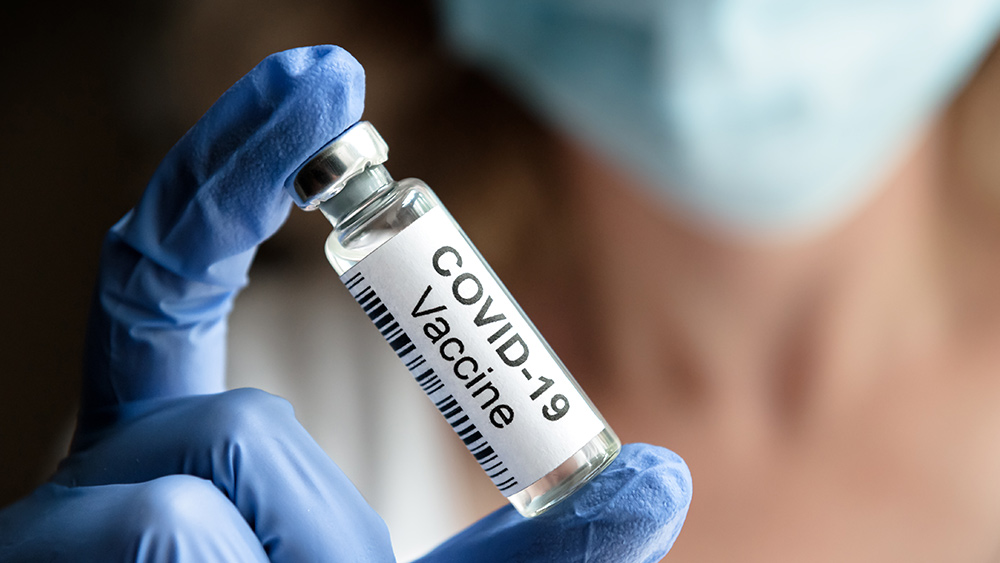Animal drug fenbendazole shows promise in treating parasites, cancer in humans
02/03/2022 / By Ethan Huff

An anti-parasite medication for animals from the benzimidazole class of pharmaceuticals shows incredible promise as an anti-cancer remedy for humans.
Fenbendazole, as it is called, is normally administered to fish, birds and mammals. It kills parasites like roundworms, hookworms, whipworms and some tapeworms. It is commonly sold under brand names like Panacur and Safe-Guard.
It turns out that some people with serious cancers have had success taking fenbendazole for certain types like pancreatic cancer, prostate cancer, colorectal cancer, non-small cell lung cancer, melanoma and colon cancer. (Related: Ivermectin is another powerful anti-parasitic with both anti-covid and anti-cancer properties.)
Dr. Daniel from CancerTreatmentResearch.com says that he first learned about fenbendazole’s use as a cancer remedy from a man with small cell lung cancer who shared about his success on his blog.
Mebendazole has repeatedly been shown in scientific studies to be a powerful weapon against cancer. Since fenbendazole is similar to mebendazole, there is little reason to believe that it behaves any differently.
“I specifically like the anti-worms, anti-parasites, antibiotics, antiviral drugs, as a pattern start to emerge suggesting that the origin of cancer may be related to such a trigger (e.g., viruses, parasites, etc.) in much more cases than we currently are aware of,” Dr. Daniel writes.
“Multiple findings and observations … indicate that such triggers may initiate cancer when they land in a ‘fertile ground,’ represented by specific genetic weaknesses combined with a compromised immune system (due to e.g., stress, lifestyle, medication, etc.).
Is fenbendazole a miracle anti-cancer remedy hidden in plain sight?
While the research on fenbendazole tends to be more anecdotal, Dr. Daniel believes the drug still holds potential because of how similar it is to mebendazole – and perhaps more importantly, how much more easily accessible it is than mebendazole.
“This anecdotal report would not be enough to trigger me writing this post, if I would not be convinced by the existing scientific evidence indicating the anti-cancer potential connected with many of the benzimidazoles drugs,” Dr. Daniel writes.
“Therefore, I do believe that if Mebendazole could show relevant anti-cancer effects in humans, which it did, Fenbendazole could do it as well and hopefully even better.”
The reason why Dr. Daniel says better in this context is because in some cases, it actually has been shown to work more effectively at treating certain parasites, including Cryptococcus neoformans, an encapsulated fungal organism that can cause meningoencephalitis in immunocompromised hosts.
A 2018 study published in the prestigious journal Nature further found that fenbendazole fights cancer cells. Entitled, “Fenbendazole acts as a moderate microtubule destabilizing agent and causes cancer cell death by modulating multiple cellular pathways,” the study concludes as follows:
“The results, in conjunction with our earlier data, suggest that Fenbendazole is a new microtubule interfering agent that displays anti-neoplastic activity and may be evaluated as a potential therapeutic agent because of its effect on multiple cellular pathways leading to effective elimination of cancer cells.”
This same paper also found that fenbendazole works to block glucose uptake by cancer cells by reducing the expression of Glut-4 transporter as well as hexokinase, thus starving cancer cells.
“Interestingly, when insulin stimulates glucose uptake in the cells, glucose transporter isoform 4 (GLUT4) translocates from intracellular vesicles to the plasma membrane ready to absorb glucose,” Dr. Daniel further explains.
“This movement of GLUT4 towards the plasma membrane takes place via both rapid vibrations around a point and short linear movements (generally less than 10 microm). The linear movement seems to take place along microtubules. When disrupting the microtubules with drugs such as Fenbendazole, GLUT4 movements are disrupted as well strongly reducing insulin-stimulated glucose uptake.”
More related news about disease remedies can be found at Cures.news.
Sources for this article include:
Submit a correction >>
Tagged Under:
alternative medicine, anticancer, Antiparasitic, cancer, cancer treatment, discoveries, drugs, Fenbendazole, Mebendazole, Oncology, parasites, research
This article may contain statements that reflect the opinion of the author




















